As the world’s largest democracy, with 1.4 billion people, India is an indispensable actor for democratic cooperation, especially beyond the West. For the Indian government, the future of democracy is being played out in Asia and Africa, where states are experimenting with competing governance models amidst China’s growing autocratic influence. More than a moral issue, India sees democracy as a factor that can facilitate convergence with fellow democracies towards a free and open Indo-Pacific.
Prime Minister Narendra Modi will likely use his participation at the Summit for Democracy to present India as a vibrant democracy that, despite many flaws, remains an exceptional success in the non-Western world. He may also see the summit as an opportunity to showcase India’s values-driven foreign policy and democracy assistance, especially to developing countries.
By striking a contrast with China, Modi may also seek to highlight India as a preferred economic and strategic partner based on shared principles such as the rule of law to attract investments or revive multilateralism. Finally, Modi may use the summit to further articulate a non-Western, native definition of Indian democracy, which dilutes the idea of universal democratic standards and resonates with his nationalist support base.
While Delhi is keen to play an active role in the summit, it is also likely to have a few concerns. Participation could also amplify external criticism about the health of India’s own democracy. The Indian government may have reservations about Washington’s central role in deciding the summit’s invitation list, agenda, and future. Finally, Delhi could also be concerned that the absence of some of its closest democratic neighbors such as Bangladesh will help promoting China’s view that the summit is just another Western-led, strategic ploy to divide Asia.
Opportunities
In line with his references to democracy in previous international engagements, Modi’s address at the summit is likely to present Indian democracy as an exceptional and exemplary model. As the country prepares to celebrate the 75th anniversary of independence from colonial Britain, he may use the summit as an opportunity to showcase examples of how Indian democracy has not only survived but is thriving despite multiple challenges.
To bolster the legitimacy of India’s democratic model, Modi will likely include several facts and figures, including India’s electronic voting system with around 900 million voters and record turnout in the 2019 national elections. Opposition parties currently rule more than half of India’s 28 states, but that will likely be left out. Modi will probably also refer to the country’s extraordinary social and religious heterogeneity, its youth, and inclusive policy initiatives to project India as a rising and deepening — rather than backsliding — democracy.
Second, the Indian government will probably also use the summit to showcase its international democracy assistance efforts, which remain widely unknown in the West. India has trained thousands of officials from Africa and Asia on electoral and parliamentary systems. Its South-South development cooperation model focuses on good governance and civil society participation.
At Indian military academies, foreign officers have been taught for decades about civilian control of the military and trained to respect human rights and the free media. Through its technical assistance program, dating back to the 1960s, India has also played a leading role in sharing developmental solutions based on democratic institutions and inclusive governance, from health to education.
Third, by emphasizing shared values, Delhi may also see the summit as an opportunity to present itself as a strategic alternative to China. Especially with Western democracies, the Indian government sees an opportunity to leverage its governance as a strategic differentiator. Modi may also present the Indian economy as a hospitable destination for foreign investors, with the rule of law and internal diversity facilitating entrepreneurship and innovation.
Finally, Modi’s participation offers him with another international platform to expand his political support at home by conveying the message that India is respected as the world’s largest democracy. To resonate with his support base, he is likely to further articulate a native, non-Western, and “Indic” vision of Indian democracy as a “civilizational-state,” two terms that are popular with the nationalist ideology of his Bharatiya Janata Party. In his recent address to the United Nations General Assembly, for example, he referred to India as the “mother” of all democracies.
Concerns
While India’s approach to the Summit for Democracy is likely to be driven by a sense of opportunity, there may also be a few concerns on the minds of Delhi’s decisionmakers.
One risk relates to the summit’s exposure to criticism, both international and domestic: can India reap the benefits of promoting its democratic system without coming under growing scrutiny? Given that Modi is expected to emphasize the positive qualities of Indian democracy, there will naturally also be questions raised about its deficiencies.
Various democracy indices have placed India on a declining trajectory, including Freedom House’s Freedom in the World, V-Dem, and Reporters Without Borders’ World Press Freedom Index. Indian Foreign Minister S. Jaishankar has dismissed these as an exercise in “hypocrisy,” while one of the ruling party’s influential foreign policy thinkers argued that the U.S. has no legitimacy to push India unless it solves its own democratic shortcomings.
Beyond pushing back against criticism, Delhi has also doubled down on public diplomacy efforts to push an alternative narrative, whether reportedly by engaging with researchers abroad or developing its own democracy index. Modi’s speech at the Summit for Democracy will likely tend towards a more conciliatory tone, in line with a new soft power strategy to present India as a land of pluralism.
A second likely set of concerns relates to any initiatives that may seek to formalize the summit through an intergovernmental track, either through a charter or permanent secretariat. India is also bound to be skeptical about making future participation contingent on “commitments” or any type of measurable performance criteria. Delhi’s preference will be for a flexible, voluntary, and consultative model.
Finally, India may also be worried about the absence of some of its democratic neighbors at the summit, including Bangladesh, Sri Lanka, and Bhutan, in striking contrast to the invitation to Pakistan. There are also notable absences in other parts of Asia, where India has used values-based arguments to explain its opposition to China’s Belt and Road Initiative. With Japan and other partners, Delhi has promoted alternative connectivity initiatives driven by “norms, good governance, rule of law, openness, transparency and equality.”
India is likely to be concerned that by leaving out its fellow, imperfect democracies, it will become harder to flesh out the vision of a free and open Indo-Pacific and counter China’s growing political influence in the region. As expected, Beijing is already using the summit’s contentious invitation list to argue that democracy is a Western luxury or imposition, incompatible with Asian values, or just a U.S. strategic instrument. Such pushback may make it harder for India to participate more actively in the global democratic cooperation agenda, especially if it is led by Washington.
Ideas
Beyond immediate opportunities and concerns about the summit, the summit could play an important role for India to take on a leading role in global democratic cooperation.
Rather than the procedural and geopolitical aspects of the summit, including the rather negative agenda to counter authoritarianism and other threats, India would probably be much more enthusiastic about a positive agenda on how democracy can enhance development. Article 16 of the Sustainable Development Goals may be a good starting point for a discussion led by India on inclusive development through effective, accountable, and transparent institutions. At the 2020 anniversary ministerial of the Community of Democracies, India emphasized the “interdependence between democracy and development.”
Another area of interest relates to how new digital instruments can help reform the justice system, increase civic participation, and enhance institutional efficiency, civic participation, and responsiveness. The transformative role of technology also offers a fertile ground for cooperation in the education and health sectors, including a rights-centered agenda. India has keenly engaged other democracies on how to govern and regulate the digital domain to balance privacy, market economy, and state security interests. Modi recently called for a cooperative democratic approach to securing cryptocurrencies.
While India will continue to welcome international dialogues on improving elections management and reforming parliamentary procedures, it is also increasingly open to exchange experiences on how to counter state-financed disinformation or online radicalization. Even on human rights there may be some space for progress, as indicated in the recent revival of India’s dialogue with the European Union and willingness to enhance cooperation at the United Nations.
Finally, the summit may also propel India to play an important role to foster democratic cooperation on its own. One idea would be for the Indian government to host a Delhi Democratic Development Dialogue (4D), in line with its growing focus on South-South cooperation. Another possibility would be to revive the India-Brazil-South Africa (IBSA) inter-democratic dialogue. For Delhi, the Summit for Democracy will be an important indicator to assess whether Washington is willing to let other, non-Western democracies like India steward democratic cooperation.
The Brookings Institution is committed to quality, independence, and impact.
We are supported by a diverse array of funders. In line with our values and policies, each Brookings publication represents the sole views of its author(s).

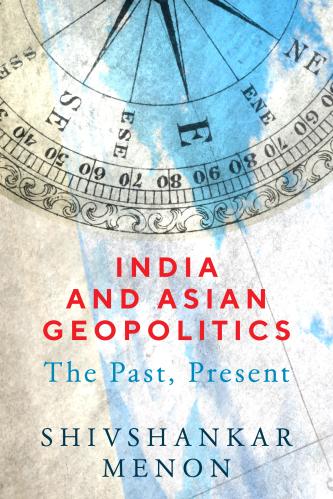
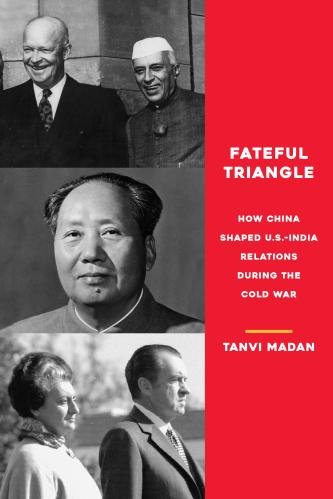
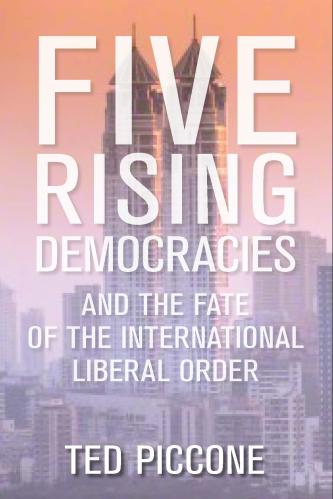
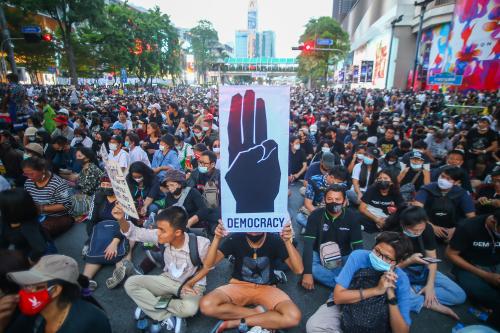
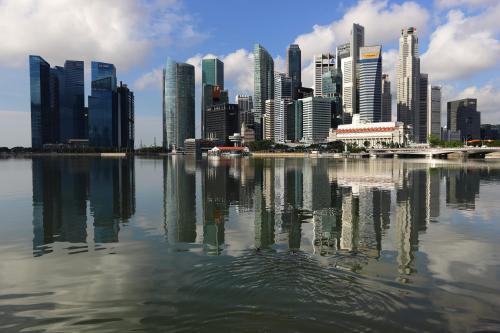
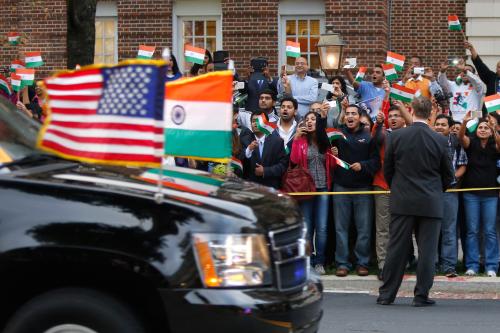
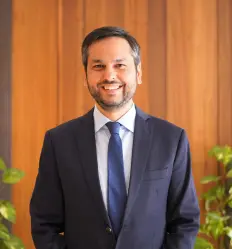

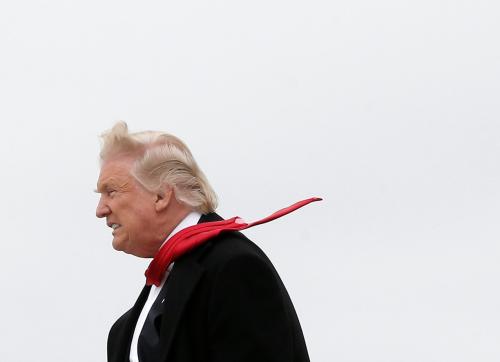
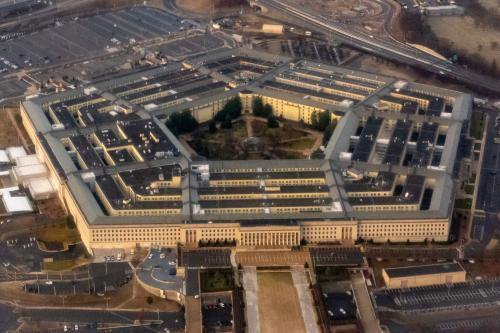
Commentary
Interpreting India at the Summit for Democracy
December 6, 2021